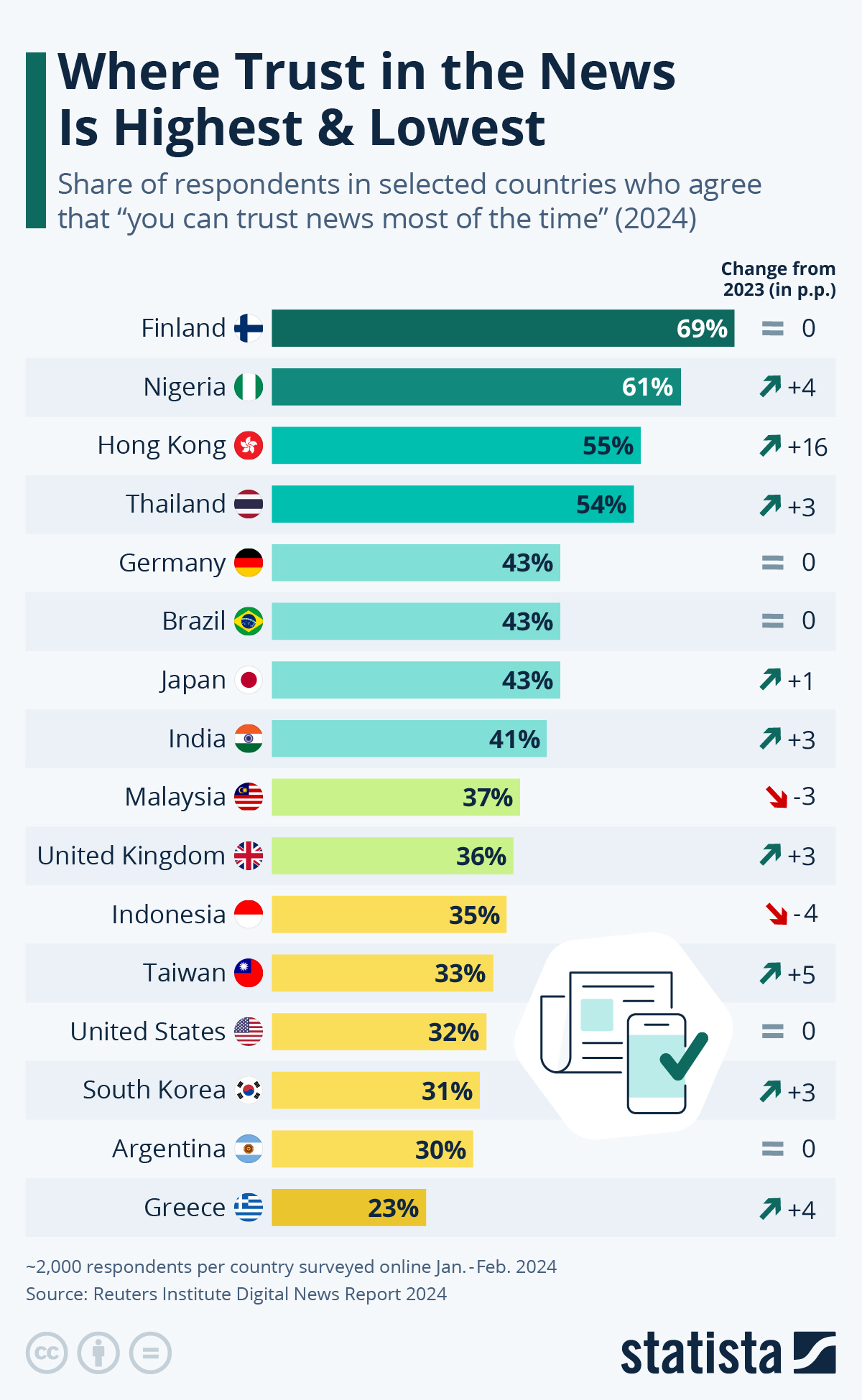The share of citizens in all countries surveyed who are “very” or “extremely” interested in news and consume it regularly fell from 51 percent in 2022 to 48 percent in 2023. Many people are choosing to increasingly ration or limit their exposure to news, or at least to news of a certain kind. News that is overly repetitive or deemed "emotionally draining" is often passed over in favor of something more uplifting.
According to the report, with the abundance of channels now available, "it is not surprising that news consumers are increasingly feeling overwhelmed and confused, and many are turning away temporarily or permanently. Selective news avoidance and news fatigue have been exacerbated by the challenging times we live in." As the study reveals, social networks that rely more on videos such as TikTok, Instagram or YouTube are becoming increasingly important for news.
In this respect the writers add: "it is clear that most consumers are not looking for more news, but for the news that seems most relevant to them and helps them make sense of the complex issues we face. The new technological disruption of artificial intelligence is just around the corner, threatening to unleash a new wave of personalized, but potentially unreliable, content."
It is important to note here that this data is based on citizens’ perceptions of the trustworthiness of media or news brands and that these scores are aggregates of subjective opinions. Analysts stress that this means that changes over time are often much influenced by “political and social factors as with the news itself."

